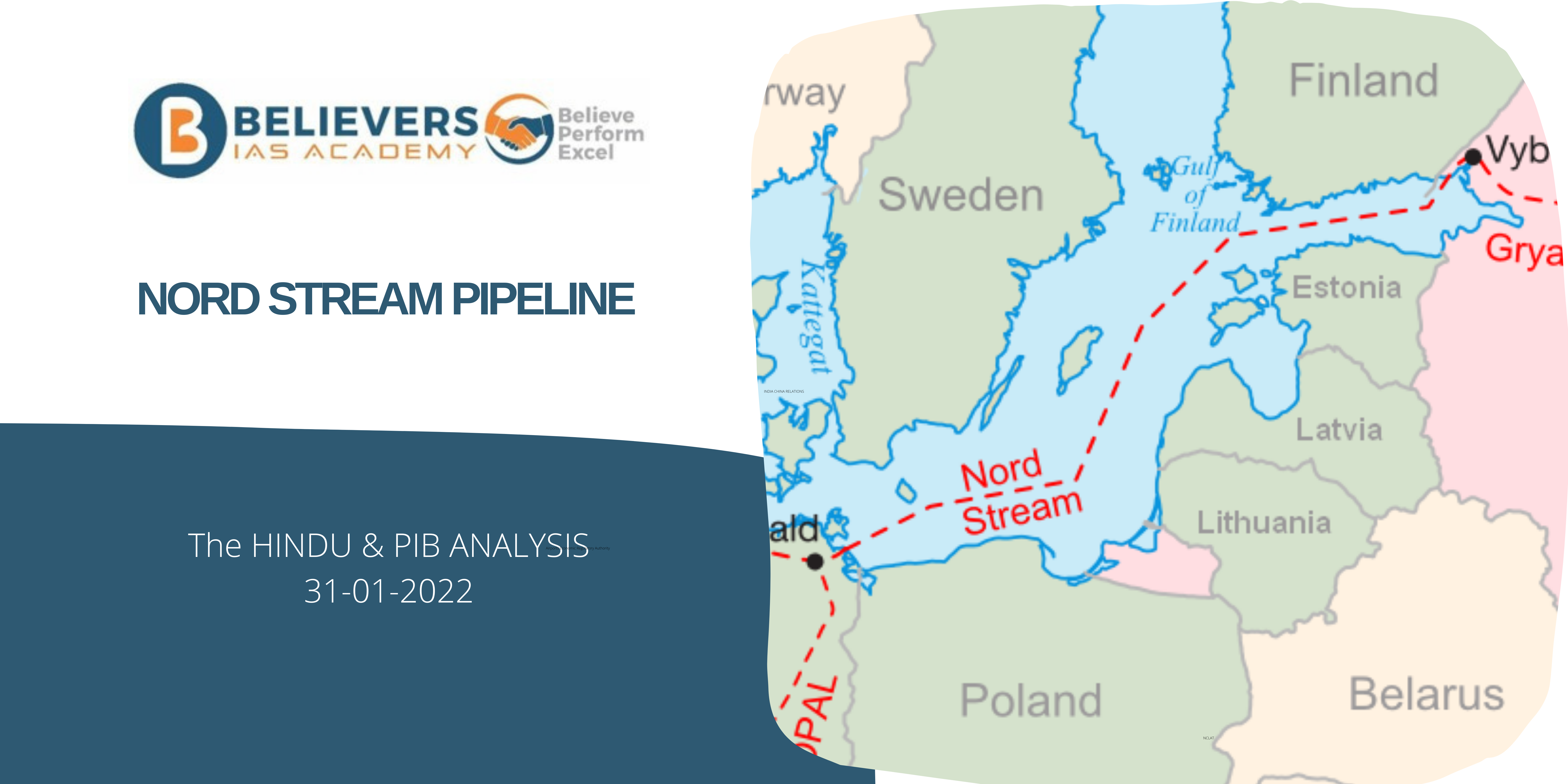Nord Stream Pipeline
Context:
- The Nord Stream pipeline is back in the news following the renewed tensions between the West and Russia over Ukraine.
- Owned by the Russian energy giant, Gazprom, Nord Stream the longest subsea pipeline, is an export gas pipeline which runs under the Baltic Sea carrying gas from Russia to Europe.
- The gas for Nord Steam comes mainly from the Bovanenkovo oil and gas condensate deposit in Western Siberia.
- The pipeline’s significance comes from the fact that it bypasses transit countries, making it highly reliable for European customers.
About:
- Nordstream consists of two pipelines, which have two lines each.
- Nord Stream 1 was completed in 2011 and runs from Vyborg in Leningrad to Lubmin near Greifswald, Germany. Nord Stream 2 which runs from Ust-Luga in Leningrad to Lubmin was completed in September 2021 and has the capacity to handle 55 billion cubic meters of gas per year once it becomes operational.
- The twin pipelines together can transport a combined total of 110 billion cubic metres (bcm) of gas a year to Europe for at least 50 years.
- The Nord Stream crosses the Exclusive Economic Zones (EEZs) of several countries including Russia, Finland, Sweden, Denmark and Germany, and the territorial waters of Russia, Denmark, and Germany.
- In Germany, the pipeline connects to the OPAL (Baltic Sea Pipeline) and NEL (North European Pipeline) which further connects to the European grid.
Issues :
- The pipeline has run into trouble from environmentalists who argue that it does not fit in with German efforts to cut dependence on fossil fuels and fight climate change.
- The $11 billion-worth Nord Stream 2 has not yet started operating because Germany says it does not comply with German law and has suspended its approval.
- The project is also awaiting approval from the European Commission.
- The strategic objection, particularly from the U.S., is that it will make Europe too dependent on Russia, increasing Russia’s influence in Europe.
- Moreover, there is concern that Russia could use it as a geopolitical weapon. Ukraine has objected because it will lose around $2 billion in transit fees once the pipeline becomes operational.
- Moreover, so long as Russian gas transits through Ukraine, Russia is unlikely to intervene and cause instability in Ukraine and Europe will stay invested in its security.
- Countries like Poland and Belarus also stand to lose transit fees and hence oppose the pipeline as it will bypass existing pipelines running through them.
- In light of the tensions over Ukraine, the U.S. has said it will stop the Nord Stream if Russia attacks Ukraine.
- But European countries, led by Germany, seemed reluctant initially to impose sanctions on the Nord Stream though it has now said sanctions are not off the table.
- This reluctance stems from the pipeline’s importance to Europe.
Source: THE HINDU.




